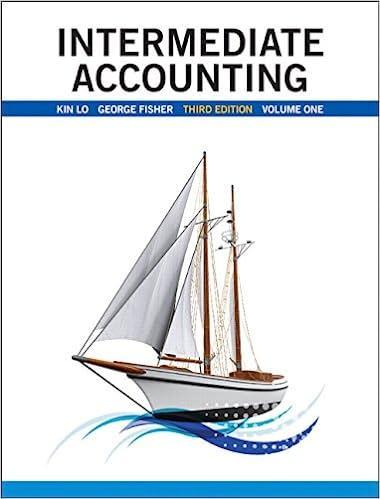Wicon Waste Facilities Inc. (WWF) is a large, diversified Canadian company with several subsidiaries operating mainly in
Question:
Wicon Waste Facilities Inc. (WWF) is a large, diversified Canadian company with several subsidiaries operating mainly in the waste management and disposal industry. WWF was incorporated in 1975 and has grown to become one of the top four waste management firms in Canada. The business was started by the Wicon family, but currently no family members are actively involved in the management of the company. Family members, family trusts, and a limited number of friends own the common shares. In 2014, the Wicon family decided that they would begin the process of selling the company over the next two or three years. In preparation for the sale, the company has engaged your firm, Hoa and Partners, to audit the company’s financial statements.
WWF has an August 31 year-end. It is now September 18, 2016, and your firm is partway through the audit of WWF for the year-ended August 31, 2016. The materiality for the engagement has been set at $6.5 million. You are reviewing the files that your junior auditors have prepared, and you note the following events:
1. On June 23, 2016, WWF received a wire transfer of 20 million Guinean francs (GNF) to its general Canadian dollar bank account in payment of an outstanding customer invoice. WWF’s bank converted the funds to $10 million Canadian, incorrectly assuming that the transfer was in the currency of Papua New Guinea, the kina (PGK). On that day, 8,000 Guinean francs bought one Canadian dollar. WWF has not informed the bank of the error and has taken the difference into income.
2. During 2016, WWF lost a decision in the Federal Court of Appeal in a lawsuit brought by Waste Systems Integrated Limited for patent infringement. In an unusual award, the court ordered WWF to pay $18 million for shares of Waste Systems Integrated Limited, a private company, which had been in some financial difficulty. WWF has decided not to appeal the decision to the Supreme Court, and the company bought the shares in Waste Systems before year-end.
3. WWF issues debt for long-term financing purposes through three major investment dealers. In July 2016, Moody’s, the credit-rating agency, put WWF’s credit rating on alert for downgrade due to the potential negative effects of progressive toughening of environmental legislation applying to waste disposal sites.
4. WWF bids on various municipal waste pickup and disposal contracts. WWF buys waste disposal sites to dump the waste collected. WWF defers and amortizes the cost of the sites over the expected useful lives of the sites, stated in tonnes of capacity, years of remaining usage, or cubic metres of waste capacity. Amortization of the cost of these sites represents 41% of WWF’s operating expenses. Of WWF’s assets, 64% are waste disposal sites. Provisions for cleanup and site sealing costs are accrued on the same basis as the amortization of the sites.
5. WWF defers and amortizes over five years the costs of locating new waste disposal sites and negotiating agreements with municipalities.
6. Every year WWF updates the estimates of the remaining useful lives of waste disposal sites using the services of a consulting engineering firm. In the past, WWF used Folk & Co., Environmental Engineers, for these reviews. Folk & Co. did no other work for WWF. Starting in 2016, WWF used Cajanza Consulting Engineers for the reviews. Based on the new consultants’ report, the useful lives of all waste disposal sites have been increased between 4% and 26% and the sealing/cleanup provision reduced by $13.6 million.
7. WWF’s management is aware that to comply with the audit, the company’s financial statements need to be prepared in accordance with GAAP. However, management is unclear which set of standards within GAAP the company should follow.
Required:
The partner has requested a memo that deals with the significant accounting issues for WWF.
Financial statements are the standardized formats to present the financial information related to a business or an organization for its users. Financial statements contain the historical information as well as current period’s financial... GAAP
Generally Accepted Accounting Principles (GAAP) is the accounting standard adopted by the U.S. Securities and Exchange Commission (SEC). While the SEC previously stated that it intends to move from U.S. GAAP to the International Financial Reporting Standards (IFRS), the...
Step by Step Answer:






